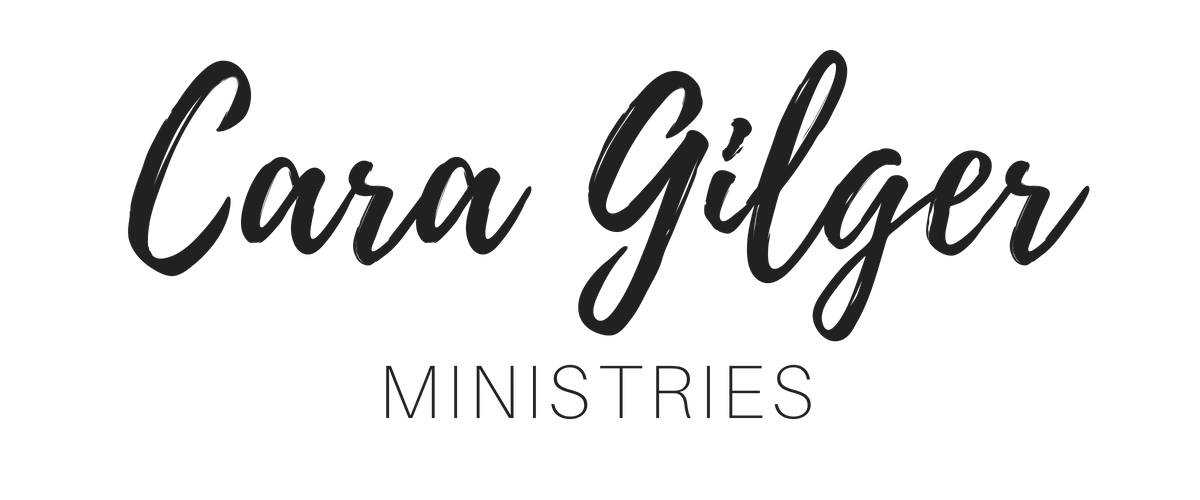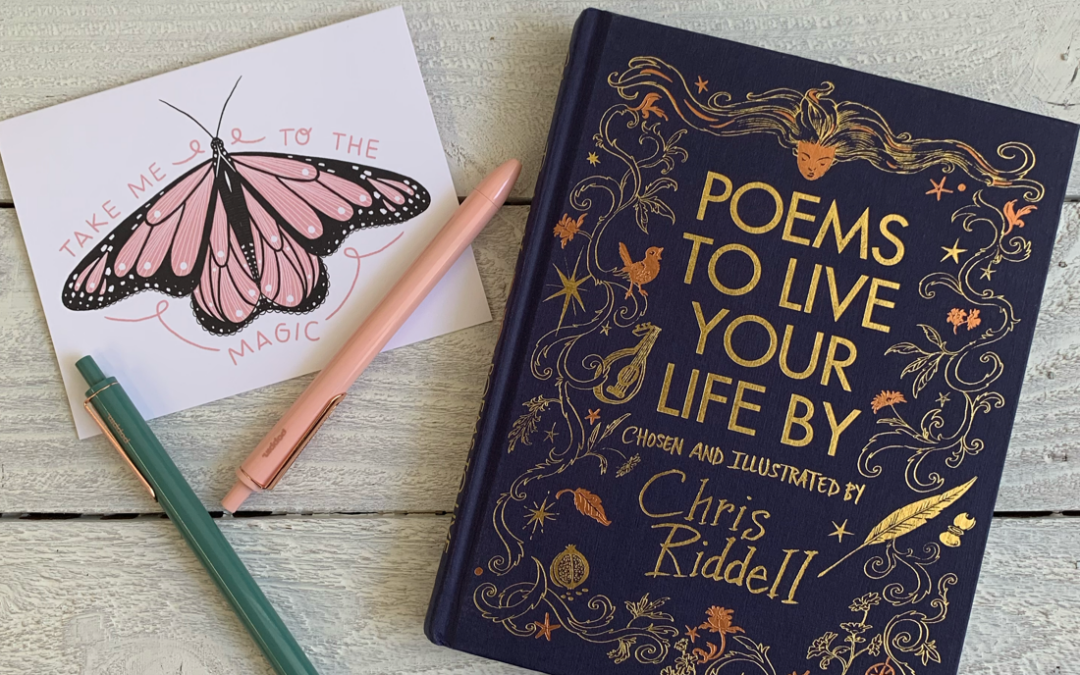I often talk about how reading poetry plays an important part of my reading and spiritual life. I try to read a poem a day, often in the morning over a steaming cup of coffee or a glass of water before I put my pen to my to-do list or crack open email. I find poetry to be incredibly grounding. As the theologian Ellen Davis says “poetry is language that speaks to the heart…to our imaginations.”
Poetry and prayer both invite us to slow down and notice, to pause and be present.
And yet, I understand why so many people are not big poetry readers. As a middle school and high school mentor that has wrestled through the poetry unit homework with my mentees and as a mother of elementary age kids, I am saddened by how dull and flattened poetry is taught. I would hate or find no use for poetry too if my only experience ended in school.
Fortunately in college after being gifted a copy of Mary Oliver’s collection New and Selected Poems, I slowly discovered the joy of poetry. The way that poets can in a single phrase or image capture a whole wealth of human experience is like no other form of writing. The way they say so much with so few words is a gift to my harried and verbose spirit.
The more I talk about poetry, the more I hear from people “I wish I was into poetry.” Or “I want to get into poetry, but have no idea where to start.” So I thought I would pull together a guide to poetry for beginners. In it are a few tips, tricks, resources and advice for how I became someone who didn’t think poetry had much to offer me to someone who reads it daily and finds it a deeply enriching part of my life.
Throw Out Everything You Learned in School
No wonder very few people like poetry when in school we are taught that every poem has some sort of hidden meaning beyond the words that we are to excavate if only we are intellectually worthy enough. Rules and dissection set the tone so much that they slice away any joy or wonder. This elitist attitude not only creates exclusivity when the reader doesn’t “get it” (I never got it in school) but it’s thoroughly untrue. Poetry is like fiction or any other kind of art–it’s layered and multidimensional. Some poets will say “my work is straight forward, it says what it says” while others will say there are layers of meaning while others will claim it’s all about the second life that comes to the poem when the reader makes it their own.
Ditch the Old Dead White Guys
I supposed while we are throwing out everything we learned in school we should probably throw out all the dead white male poets that were foisted on us as the pinnacle of the art form of poetry. I have a soft spot for Edgar Allen Poe’s The Raven since I had to memorize it in the fourth grade too, but these men that we were present with are not the pinnacle of poetic creativity. Art is a privilege and many of the artists we studied in school created their art within the echo chambers of profound privilege which is reflected in the concerns of their work and the expression of their joy.
Poets of color, female poets and non-gender binary poets not only write from a different perspective and worldview but with a different language and cadence. Our imaginations are shaped by the world we live in and I tend to resonate toward work created by poets that bring a diversity of perspective and voice. I also find a richness in discovering some of the universal connections we share.
Try the work of of US poet laureate Rita Dove or bask in the queer black wisdom of Danez Smith or the protest poetry of Clint Smith III or the beauty of Naomi Shyab Nye or the native voice of Joy Harjo. There are so many voices out there expressing what it means to be alive and struggle and find beauty in this world.
First Poetry is About Feeling, Not Thinking
Now that we’ve tossed out our formal education and all the dead white guys, where to start? Start with feeling. How does the poem make you feel? The clues to how a poem makes you feel sits in the body. Does a line catch your breath? Can a turn of phrase tighten your chest? Are there images that cause your shoulders to relax and allow you to breathe out slowly? Did you make a small sign or furrow your brow at the closing line? Those are not first reactions to be brushed aside for more “intellectual” analysis, they are what poetry is made for–listening, noticing, feeling, thinking just a half turn differently about something mundane and extraordinary.
Slow Down, Slow Way Down
Our culture pushes us to move fast and produce and consume more. That attitude can surely bleed into our reading habits. Poetry, like yoga, invites my brain to slow down and be present, to take in each word, pause and phrase. You cannot skim poetry and get the gist. Poetry is absorbed best slowly, after taking a deep breath or a sip of water, allowing the words to unfold in their meaning and texture. Poetry invites readers into unhurried wonder and revelatory insight. So take a minute when reading to sit, to breathe, to read and experience. For this reason, I generally don’t sit down to read an entire volume in one sitting. Instead I will read one or two a day until I read the entire collection, give each piece the space in my head and heart to do its work.
Create Time and Space to Read
I find there are times of day and spaces in my world that make it easier to read poetry than others. I try to choose times a day when I am not distracted by the press of my work or responsibilities–first thing in the morning over my cup of coffee, after I have put away my phone before I go to bed. I need space to listen, over being entertained. And I like to read outdoors if I can particularly when the weather cooperates. The time I set aside is no more than ten minutes but it is ten minutes that feed my soul and ground my day.
Utilize Audio Resources
I am a person who can now say “I go to poetry readings.” I know, my friends say that makes me a next level nerd and it sounds so pretentious. But there is something about hearing someone read their own work with the intention and care and feeling behind it reflected in their own voice. The good news is you don’t have to attend a poetry reading to experience poets reading their work. There are several online spaces where you can hear poets read their work but one of my favorites is On Being’s Poetry Archive. On Being also offers interviews with poets that I have found moving, especially the interviews with Ross Gay and Mary Oliver. Another excellent resource is the podcast The Slowdown curated by United States Poet Laureate Tracy K Smith which brings listeners a brief word and a poem a day. Hearing a poet read their work can help you hear new inflection and emphasis that can help you understand and get more out of the experience.
Above all, find what you connect with and start there. If you are interested in seeing my favorite books of poetry you can check out my list HERE.
Like what you’ve read? Want more? Sign up for my twice a month newsletter (because we’re not spammy) and get original content you can’t find here on the blog. Reflections on faith and living, book recommendations and other good, nerdy fun. Sign up HERE.



Recent Comments